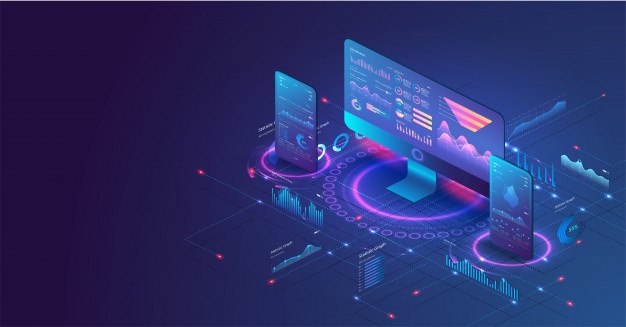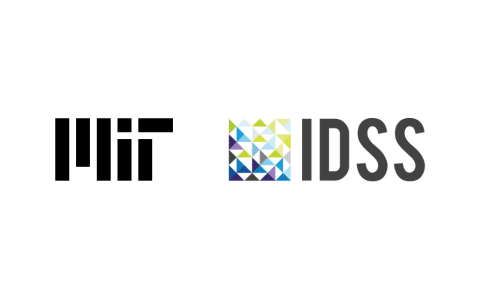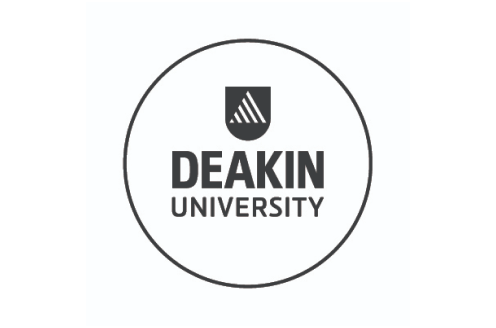Basics of Data Visualization for Data Science
Dive into our free course on Data Visualization for Data Science! Master Python, Tableau, Power BI, R, and real-world Power BI projects. Enrol now!

Ratings
Level
Learning hours
Learners
Skills you will learn
About this course
This free course offers a focused exploration into the world of data visualization tools and techniques. Beginning with Data Visualization using Python, the course introduces essential programming skills for creating informative visuals. It progresses to include training in Data Visualization using Tableau and Power BI, equipping learners with the know-how to build dynamic dashboards and reports in these popular platforms.
In addition, the course covers Data Visualization with R, broadening the scope of tools at the learner's disposal. The curriculum culminates with a practical application, enabling students to engage in Power BI Projects and specifically focus on Visualizing IPL team performance using Power BI. This unique segment offers a deep dive into sports data analytics, providing hands-on experience in a real-world context.
Ready to go beyond the basics? Take your data analytics skills to the next level. Check out our PGP in Data Science and Business Analytics.
Course Outline
Explore the art of data visualization in Python, from basic plotting with libraries like Matplotlib and Seaborn to creating interactive visualizations with Plotly. Learn how to convey complex insights effectively using Python's rich ecosystem of visualization tools.
Dive into the realm of visual analytics with Tableau. This course covers the fundamentals of data connection, exploration, and creation of interactive dashboards. Master the skills to transform raw data into compelling visual stories, enabling informed decision-making in diverse industries.
Unlock the potential of Power BI for transforming data into actionable insights. This course covers data importing, modeling, and creating visually stunning reports and dashboards. Gain expertise in storytelling with data, making Power BI an essential tool for business intelligence.
Embark on a journey through data visualization with R. From basic plots using ggplot2 to advanced visualizations, learn to leverage R's flexibility in creating expressive and publication-quality visuals. Acquire skills for exploratory data analysis and effective communication through visuals.
Elevate your Power BI proficiency through hands-on projects. This course focuses on real-world applications, tackling complex datasets and business scenarios. Sharpen your Power BI skills by working on diverse projects that mirror the challenges faced in the professional landscape.
 UPGRADE
UPGRADE
Recommended university programs
What our learners enjoyed the most
Skill & tools
61% of learners found all the desired skills & tools
Frequently Asked Questions
Will I receive a certificate upon completing this free course?
Is this course free?
What prerequisites are required to enrol in this Free Data Visualization for Data Science course?
You do not need any prior knowledge to enrol in this Data Visualization for Data Science course.
How long does it take to complete this Free Data Visualization for Data Science course?
It is a 8.0 hour long course, but it is self-paced. Once you enrol, you can take your own time to complete the course.
Will I have lifetime access to the free course?
Yes, once you enrol in the course, you will have lifetime access to any of the Great Learning Academy’s free courses. You can log in and learn whenever you want to.
Other Data Science tutorials for you
Basics of Data Visualization for Data Science
Data visualization is a crucial aspect of data science, playing a pivotal role in transforming complex data sets into understandable and actionable insights. It is the graphical representation of data through charts, graphs, maps, and other visual elements, aiding in the identification of patterns, trends, and relationships within the data. As the volume and complexity of data continue to grow, effective data visualization becomes increasingly essential for both data scientists and decision-makers.
One primary goal of data visualization in data science is to communicate information clearly and efficiently. Raw data, no matter how comprehensive, often fails to convey meaningful insights to a broad audience. Visualization provides a bridge between the data and its interpretation, making it accessible to individuals with varying levels of technical expertise. This democratization of data empowers decision-makers across different domains to make informed choices based on visual patterns rather than raw numbers.
Charts and graphs are fundamental tools in data visualization, each serving specific purposes. Line charts, for example, are effective in depicting trends over time, while bar charts are useful for comparing quantities. Pie charts offer a way to represent proportions, and scatter plots reveal relationships between variables. Advanced visualizations, such as heatmaps and network diagrams, allow for a deeper exploration of complex data structures.
One of the significant benefits of data visualization is its ability to reveal insights that might be hidden in large, complex datasets. By representing data visually, patterns and outliers become more apparent, enabling data scientists to identify correlations, anomalies, and trends that may have otherwise gone unnoticed. This exploratory aspect of visualization is crucial for hypothesis generation and validation in the data science process.
Moreover, data visualization facilitates storytelling with data. Instead of presenting a mere collection of statistics, a well-crafted visualization tells a narrative that captivates the audience and conveys the message effectively. This storytelling aspect is particularly important when presenting findings to non-technical stakeholders who may lack the expertise to interpret raw data. Visualizations can simplify complex concepts and make data-driven insights more relatable and actionable.
Interactive data visualizations further enhance the analytical process. With tools like Tableau, Power BI, and D3.js, users can interact with visualizations, drilling down into specific data points, filtering information, and gaining a more granular understanding of the dataset. This interactivity promotes a dynamic exploration of data, allowing users to tailor their analyses to specific questions or areas of interest.
In the realm of machine learning and predictive modeling, data visualization is instrumental in the evaluation of model performance. ROC curves, confusion matrices, and calibration plots are examples of visual tools that help assess the accuracy and reliability of machine learning models. Visualization also aids in feature engineering, helping data scientists identify the most relevant variables for predictive modeling.
In conclusion, data visualization is an indispensable tool in the data scientist's arsenal. It transforms raw data into a visual language that is accessible, informative, and actionable. From aiding in exploration and discovery to facilitating communication and decision-making, data visualization plays a central role in extracting value from the ever-expanding sea of data. As the field of data science continues to evolve, the importance of effective data visualization will only grow, ensuring that insights derived from complex data are not just accurate but also comprehensible to a diverse audience.






















.jpg)


















